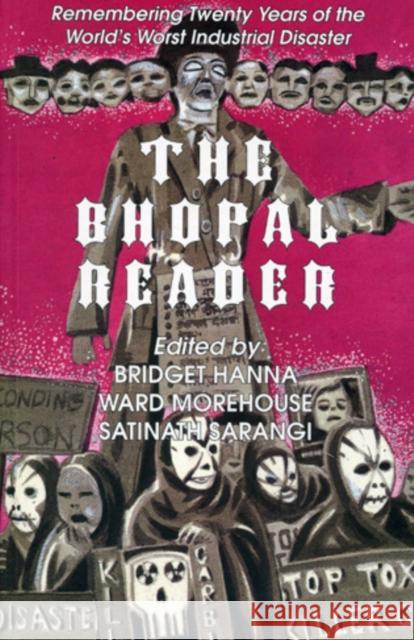The Bhopal Reader: Twenty Years of the World's Worst Industrial Disaster » książka
The Bhopal Reader: Twenty Years of the World's Worst Industrial Disaster
ISBN-13: 9781891843327 / Angielski / Miękka / 2005 / 306 str.
This chronicle of the multifaceted Bhopal campaign against two of the world's most powerful chemical corporations, Union Carbide and Dow Chemical Co. (which now owns Union Carbide), parallels the emergence of public understanding of environmental safety and corporate accountability that Bhopal helped to create.Written at the 20th anniversary, the Reader includes primary source documents of this evolution. In 1984, the deadly pesticide used in Bhopal and in the United States was hailed by agro-business as part of its "revolution." A valuable reference text for industrial accidents and corporate crimes as well as a handbook for research, prevention and activism, the collection includes gripping first person stories of some of the 200,000 permanently-injured survivors, activists, journalists, scientists, doctors, government and corporate officials. This anthology brings together never-before published testimonies, archival documents translated from Hindi, legal and scientific evidence and commentary, social analysis, even corporate perspectives on liability, and web debates, with comprehensive introductions for each aspect of the disaster. The Bhopal Reader documents forces that are even now bringing Bhopali women to the very doors of the corporation in protest. Some 21 years later, the drinking water is contaminated because Union Carbide never cleaned up its abandoned factory with bags of stored chemicals, causing genetic damage to yet another generation from the deadly methyl isocyanate (MIC) gas. The book reports on the international Bhopal campaign being waged today by survivors, activists, lawyers, doctors - in India, the U.S., Britain and elsewhere around the world - for compensation for all the Bhopal victims. It takes its readers across continents, into newspapers, television stations, websites, courtrooms, shareholders annual meetings, campuses, and chemical plants. The Bhopal Reader presents a valuable case study of the complexities of fighting for justice in a world increasingly overrun by the politics of corporate rule under globalization. Its voices herald the dialogues that will dominate this new century and The Bhopal Reader is the indispensable guide to understanding them.











